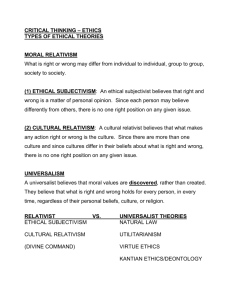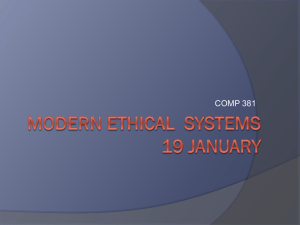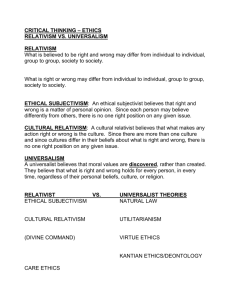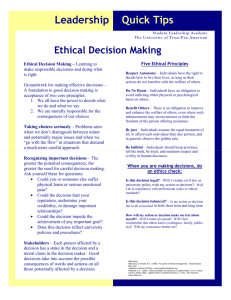Study Questions for First Exam
advertisement
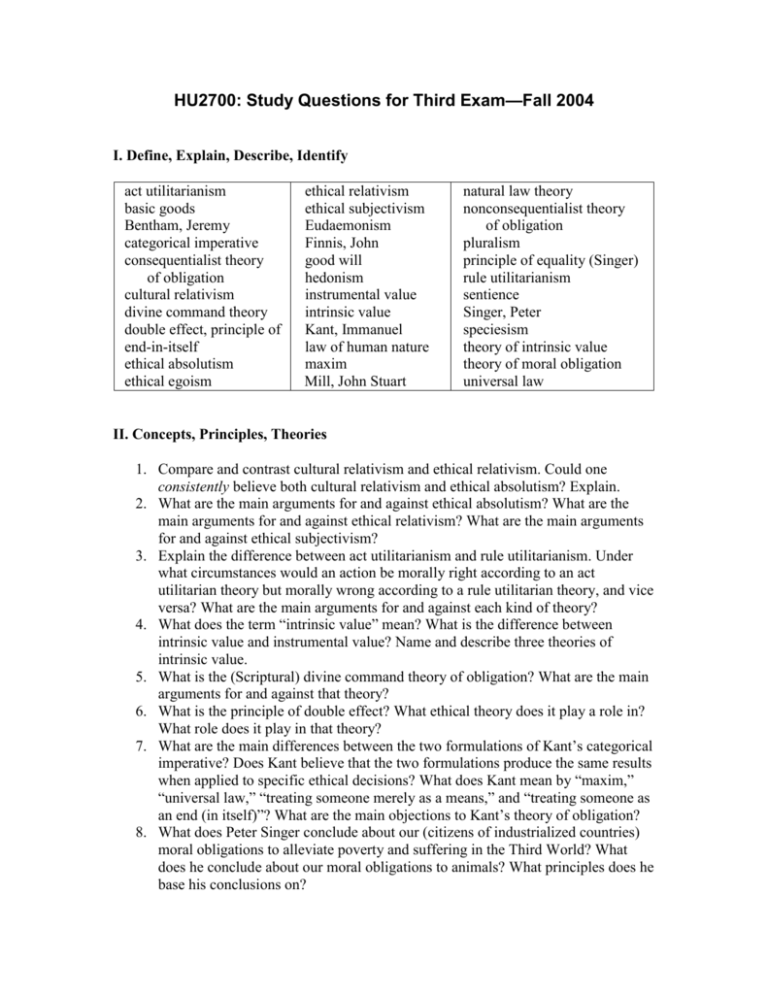
HU2700: Study Questions for Third Exam—Fall 2004 I. Define, Explain, Describe, Identify act utilitarianism basic goods Bentham, Jeremy categorical imperative consequentialist theory of obligation cultural relativism divine command theory double effect, principle of end-in-itself ethical absolutism ethical egoism ethical relativism ethical subjectivism Eudaemonism Finnis, John good will hedonism instrumental value intrinsic value Kant, Immanuel law of human nature maxim Mill, John Stuart natural law theory nonconsequentialist theory of obligation pluralism principle of equality (Singer) rule utilitarianism sentience Singer, Peter speciesism theory of intrinsic value theory of moral obligation universal law II. Concepts, Principles, Theories 1. Compare and contrast cultural relativism and ethical relativism. Could one consistently believe both cultural relativism and ethical absolutism? Explain. 2. What are the main arguments for and against ethical absolutism? What are the main arguments for and against ethical relativism? What are the main arguments for and against ethical subjectivism? 3. Explain the difference between act utilitarianism and rule utilitarianism. Under what circumstances would an action be morally right according to an act utilitarian theory but morally wrong according to a rule utilitarian theory, and vice versa? What are the main arguments for and against each kind of theory? 4. What does the term “intrinsic value” mean? What is the difference between intrinsic value and instrumental value? Name and describe three theories of intrinsic value. 5. What is the (Scriptural) divine command theory of obligation? What are the main arguments for and against that theory? 6. What is the principle of double effect? What ethical theory does it play a role in? What role does it play in that theory? 7. What are the main differences between the two formulations of Kant’s categorical imperative? Does Kant believe that the two formulations produce the same results when applied to specific ethical decisions? What does Kant mean by “maxim,” “universal law,” “treating someone merely as a means,” and “treating someone as an end (in itself)”? What are the main objections to Kant’s theory of obligation? 8. What does Peter Singer conclude about our (citizens of industrialized countries) moral obligations to alleviate poverty and suffering in the Third World? What does he conclude about our moral obligations to animals? What principles does he base his conclusions on?
